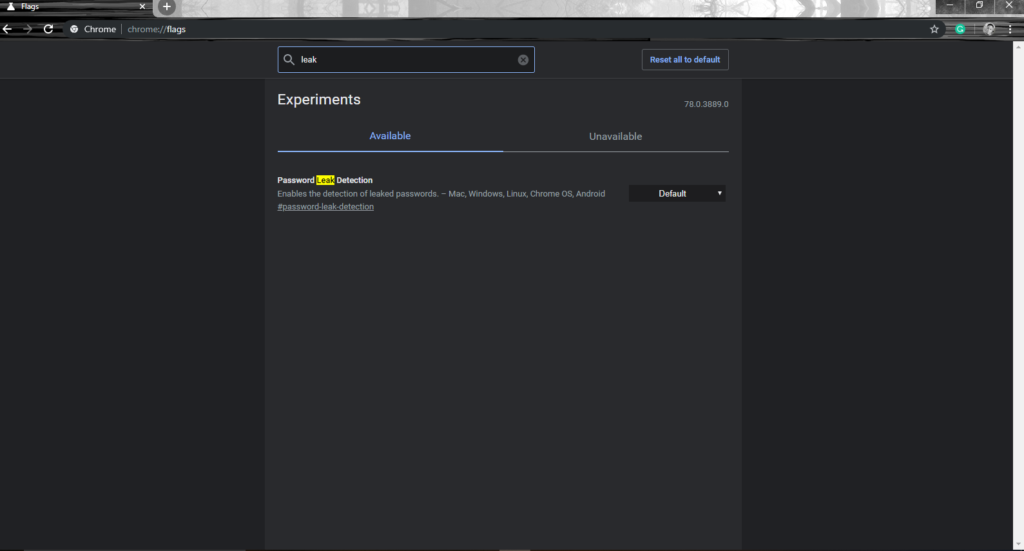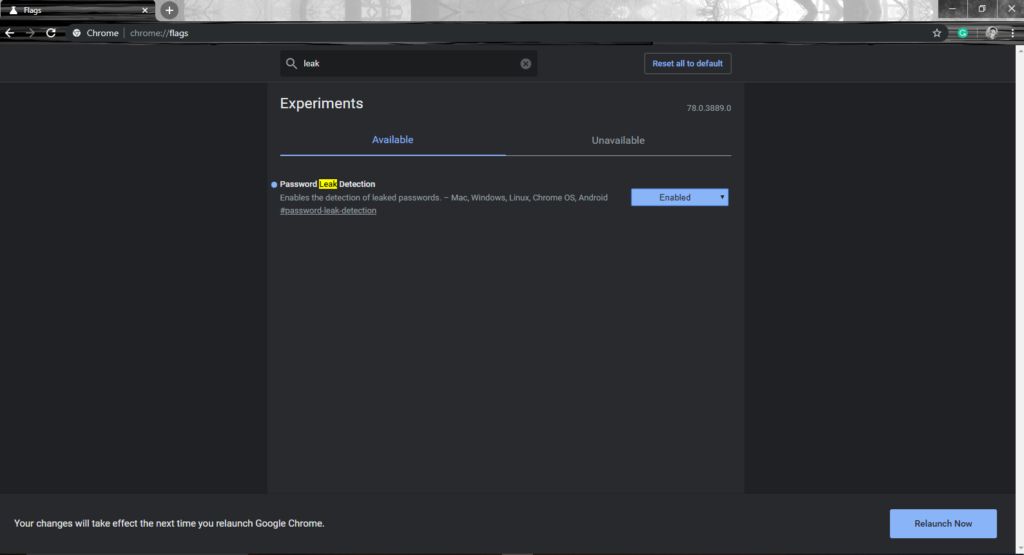A lot of people have had their password leaked in time past as a result of a data breach and don’t even know about it. These same people go on using that same password to access their other accounts which can later end up being compromising. However, keeping your password safe is still very much your responsibility and you should try using multiple passwords and also change them from time to time. That said, Google Chrome can still help you out in figuring out which of your passwords have been compromised using the Password Leak Detection feature.
Read More: How to download your Twitter account information
In order to use the ‘Password Leak Detection’ feature, you have to be signed in to Chrome first and it is accessible on Chrome 78 Canary. To enable Password Leak Detection, you will have to visit the Chrome flags page by typing in chrome://flags in the browser. This will take you here;
You then toggle on the default option and click on enable. This will prompt you to restart the browser, do that. You can also access the feature in Chrome’s password manager as well.
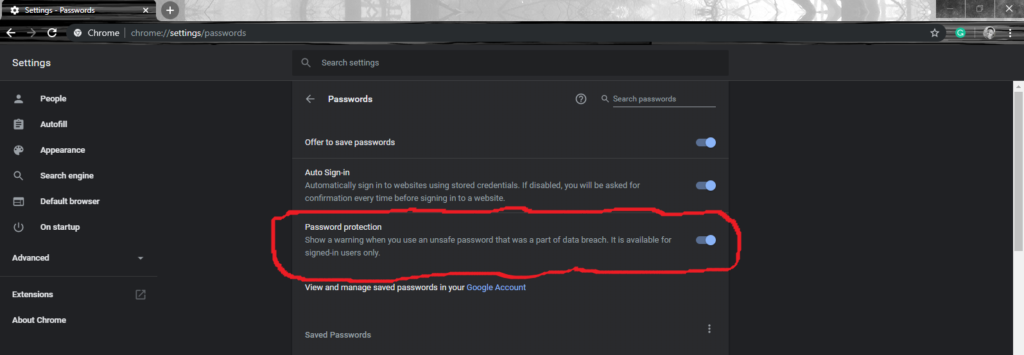
Once enabled, you will be alerted whenever you’re entering your leaked password in a website that suffered a data leak by a prompt popping up with the message ‘Chrome found this password on a public list of unsaved passwords that were part of a data breach.’ and suggesting that you check your saved passwords to keep your account safe.
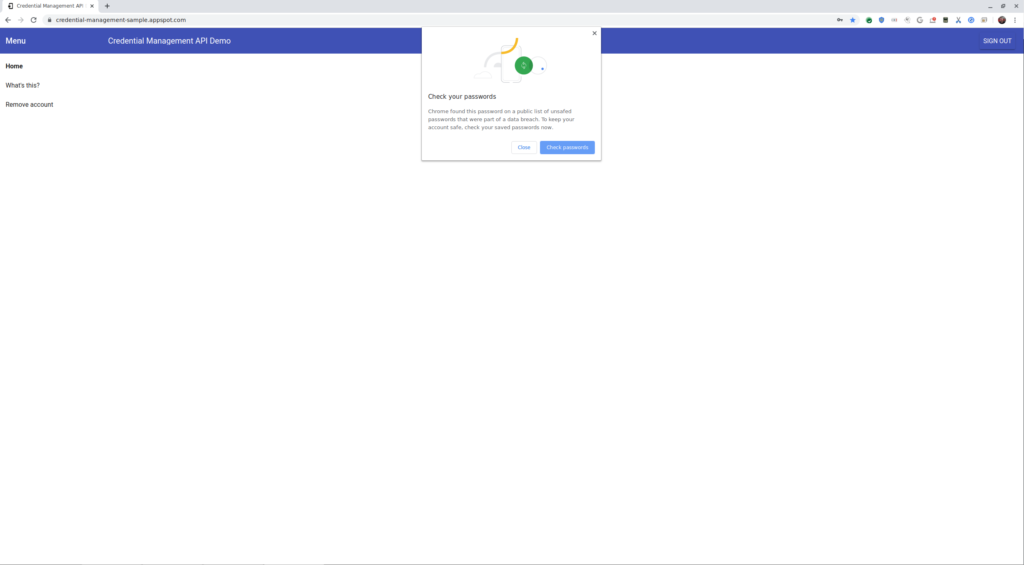
Following that, you will be redirected to Password Checkup to reconfirm if your password was breached and if so, you will be advised to change your password in the affected website.
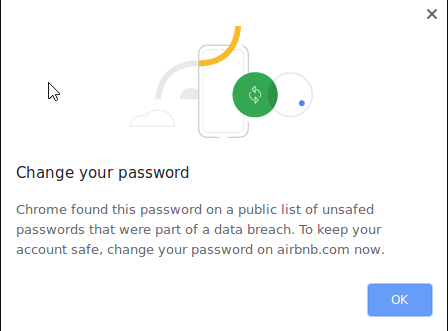
Source: Techdows
Discover more from Dignited
Subscribe to get the latest posts sent to your email.



